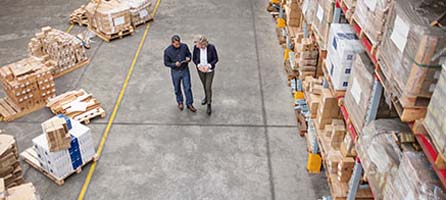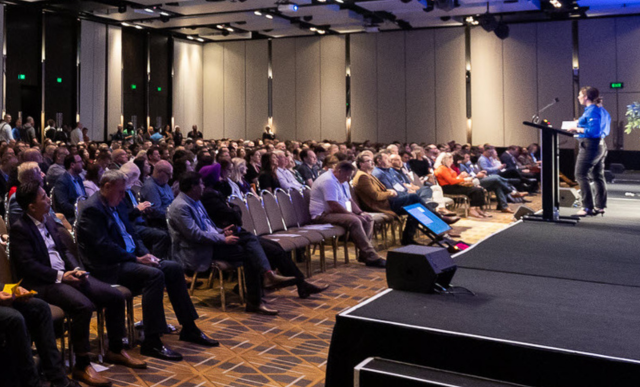From Transactions to Data Management, the Blockchain Can Have a Huge Impact in Establishing Smarter Cities
When you hear the word blockchain, the first things to come to mind are probably cryptocurrencies like Bitcoin and Ethereum. True enough, cryptocurrencies are the more popular — and notorious — offshoots of blockchain technology. But coins are not the only things that the blockchain makes possible. The distributed and public nature of this digital ledger has given rise to whole new industries that revolve around improving the speed, security, and dependability of transactions.
What Is a Blockchain?
Blockchains are distributed public ledgers that operate as a peer-to-peer network in which each transaction can be validated and confirmed by each peer. Such networks do not have a centralized authority, and each record can be scrutinized by each peer, thereby enabling the peers to audit transactions and prevent any potential fraud.
The flexibility offered by the blockchain is evidenced by how cryptocurrencies solve the frictional inefficiencies of having centralized systems for authentication and transaction recording. In fact, it is said that cryptocurrencies might signal the end of gold. By distributing these responsibilities across all the players in the ecosystem, the blockchain effectively makes the recording of data transparent, non-refutable, and easily authenticated.
Such transparency has made it viable to use the blockchain as a means of exchanging value through cryptocurrencies. Of course, the main criticism — and also its main advantage — of cryptocurrencies is that they are inherently unstable. Bitcoin’s value is susceptible to external shocks, for example, and is highly susceptible to demand pulls and supply pushes. This means the price can skyrocket at any given time, and the balloon can also burst just as quickly.
This makes Bitcoin an ideal tool for speculation, but it is a very risky form of investment, wherein the exchange value against fiat currencies (like the US dollar) can have wild swings. Thus, while cryptocurrencies are the more popular face of blockchains, the real potential might just lie elsewhere.
Viable Uses of Blockchain Technology
Start-ups and enterprises have already warmed up to blockchain technology in powering their distributed ledger technologies. Such use cases enable organizations to cut out the middleman, so to speak. In many industries, the middleman can be any additional entity that can increase the cost and duration of doing transactions — it can be a third-party company that facilitates transactions; it can even be a government office with all its bureaucratic red tape.
This goes beyond the financial industry — the blockchain is actually very flexible in terms of the industries and use cases it can support.
One example is real estate, which is ripe for disruption from blockchain technology. A start-up called Ubitquity is offering a service for keeping track of real properties and real estate transactions through the blockchain. This service makes it easy to establish proof of ownership and also improves the speed by which exchange of value and ownership can be made.
Another similar platform is Singapore-based Averspace, which does the same for real properties in the city-state. Averspace even provides a blockchain-powered service for managing rental properties — in this case, the “smart contracts” between lessor and lessee are signed and stored on the blockchain for easy authentication, access, and audit.
Of course, such innovations require the support of whatever regulatory body oversees the transactions. In the case of real estate, property regulators are reportedly keen on adopting these disruptions, especially since they can easily reduce the cost and friction in accomplishing transactions such as sales, rentals, and even payments.
Solving the Headaches of Smart Grids Through IoT
As distributed ledgers, blockchains can store and share large pieces of information. This feature can be useful in establishing smart contracts. Such smart contracts between two parties can be in the form of transaction confirmations, and the like. This can also involve commercial record keeping, in which there is no longer a centralized repository for bookkeeping. All recorded transactions can be verified, confirmed, and audited by any party involved, thus enabling clients or vendors to better keep track of supply chains.
The users here do not necessarily have to be individuals or corporate entities. The Internet of Things (IoT), a connected network of devices, can be the entities to exchange and store data through the blockchain, enabling their interactions to be stored, confirmed, and audited through the distributed ledger.
According to a Harvard Business Review article, utilizing the blockchain can help resolve the issue of trust across supply chains. This helps resolve potential concerns about data leakages and misrouting of information and items across the supply chain. This has a wide array of applications. For example, in Germany, a start-up called Grid Singularity is using blockchain tech to manage the exchange of electricity through a smart grid, wherein both power generation facilities and users with generation capabilities such as solar cells, can become buyers and providers of electricity. The company’s decentralized energy exchange facilitates applications that monitor grid equipment and validate electricity rates, among others — all using blockchain technology.
This does not even have to involve service providers. In New York, neighborhoods are experimenting with the use of blockchain tech to exchange excess solar-generated power in a micro-grid.;
The Takeaway
Decentralization has been the mark of the modern Internet, and the blockchain has introduced significant improvements in how digital entities communicate, collaborate, and transact. Across geographies, blockchain-powered technologies are changing the way people acquire properties and manage their energy needs — all with a focus toward building smarter cities.
With blockchain-powered start-ups introducing new ways to manage data and information exchange, the question now is whether these will be viable and profitable solutions for the long term, and how well end users will benefit from the efficiency gains.






